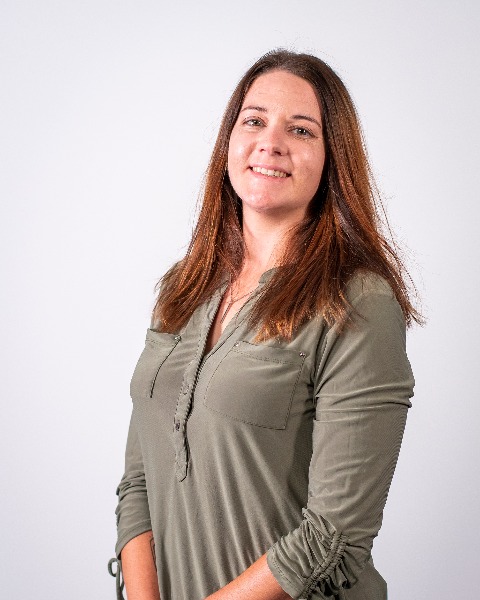Collaborative, Participatory & Empowerment Evaluation
Sharing Power and Stories in a Community of Practice Addressing Food Insecurity
-

Luis Paganelli Marin, PhD (he/him/his)
Research Writer
University of Arkansas for Medical Sciences, Arkansas, United States -

Marissa Spear, CPA-NM (she/her/hers)
Program Evaluator
University of Arkansas for Medical Sciences, Arkansas, United States -

Chelsea Barker, MS, CHES (she/her/hers)
Program Manager
University of Arkansas for Medical Sciences
Springdale, Arkansas, United States -
.jpg)
Jenni Vaughan, RDN, LD (she/her/hers)
Senior Project Manager
University of Arkansas for Medical Sciences, United States
Presenter(s)
Location: White River Ballroom C
Abstract Information: Community-based organizations (CBOs) working to address food insecurity often work with limited capacity and funding, compete with fellow CBOs for resources, and operate in a scarcity framework. Uncoordinated networks of CBOs lead to gaps and redundancies of efforts. Communities of practice can be a useful strategy for addressing issues of capacity, funding, and lack of coordination between CBOs. The issue of food insecurity is well known and documented, but the coordination and evaluation of food insecurity interventions through a community of practice is less reported and less known. A community of practice necessitates continuous process evaluation and integration of evaluation at every step in the project to address the multilayers of decision-making and power-sharing. In this roundtable, the presenters will describe the need for evaluation integration into communities of practice and share examples of how they have used evaluation activities in the Northwest Arkansas Food Insecurity Community of Practice (NWA FI CofP). The NWA FI CofP is made up of 23 CBOs, local advisors who have experienced food insecurity, a national advisory board, and program and evaluation staff working to improve equitable access to healthier foods and decrease the rate of food insecurity in the region. The presenters will then facilitate a discussion with attendees about the importance of evaluation integration in communities of practice, how evaluation can help facilitate power-sharing among CBOs, and problem solve ways attendees have worked to decentralize decision-making in community networks.
Relevance Statement: Fully integrating evaluation into the Northwest Arkansas Food Insecurity Community of Practice (NWA FI CofP) has helped share power and stories among CBOs and local stakeholders to address food insecurity. Communities of practice are relatively new in practice but age-old in theory: a process of collective learning to solve a common issue (Wenger-Trayner and Wenger-Trayner, 2015). Importantly, Wenger-Trayner stress that a club, network, or group with a common interest do not constitute a community of practice. Rather, there is an emphasis on the domain, or common issue of focus, and the actual practice of collective and shared learning. Previous evaluation of communities of practice have used mixed-methods approaches. Social network analyses have been a common tool to evaluate communities of practice in other settings, but network analyses may not always capture the qualitative nature of small-scale relationship-building and collaborative decision-making common in communities of practice. In the NWA FI CofP power is shared among program team members, evaluators, participating organizations, and advisors leading to genuine collaboration in addressing the recurring barriers facing food insecure neighbors. We are currently evaluating the NWA FI CofP which is working with 23 community-based organizations (CBOs), local advisors who have experienced food insecurity, and a national advisory board to improve equitable access to healthier foods for food insecure households with a long-term goal of decreasing the rate of food insecurity in the region. Evaluation has been integrated at every level of the CofP to guide programming, decision-making, strategy, and pilot projects which have been developed and created by the community-based organizations to target specific sub-goals. The stories and experiences of the CBOs and their clients as well as the local advisors have guided CBOs to collaboratively co-create 3 pilot projects after narrowing down priorities through a literature review, SWOT analysis, idea sharing, theme-building, and facilitated discussions. We will share our specific experiences and then open up a discussion with attendees. During this roundtable, we hope to address the following questions: 1. What collaborative outcomes have been achieved through evaluation capacity building? 2. How does empowerment of organizations in power sharing and capacity building manifest? 3. What are the biggest lessons learned in fully integrating participatory evaluation approaches into communities of practice? Communities of practice continue to be an important tool for increasing long-term collaboration and sustainability, allowing organizations to identify gaps, reduce redundancy of efforts, and work toward common goals. Integrating evaluation activities throughout the course of the life of the NWA FI CofP has been essential to adapting programming to best serve the needs of food insecure individuals in the region, while also strengthening the capacity of community organizations.
